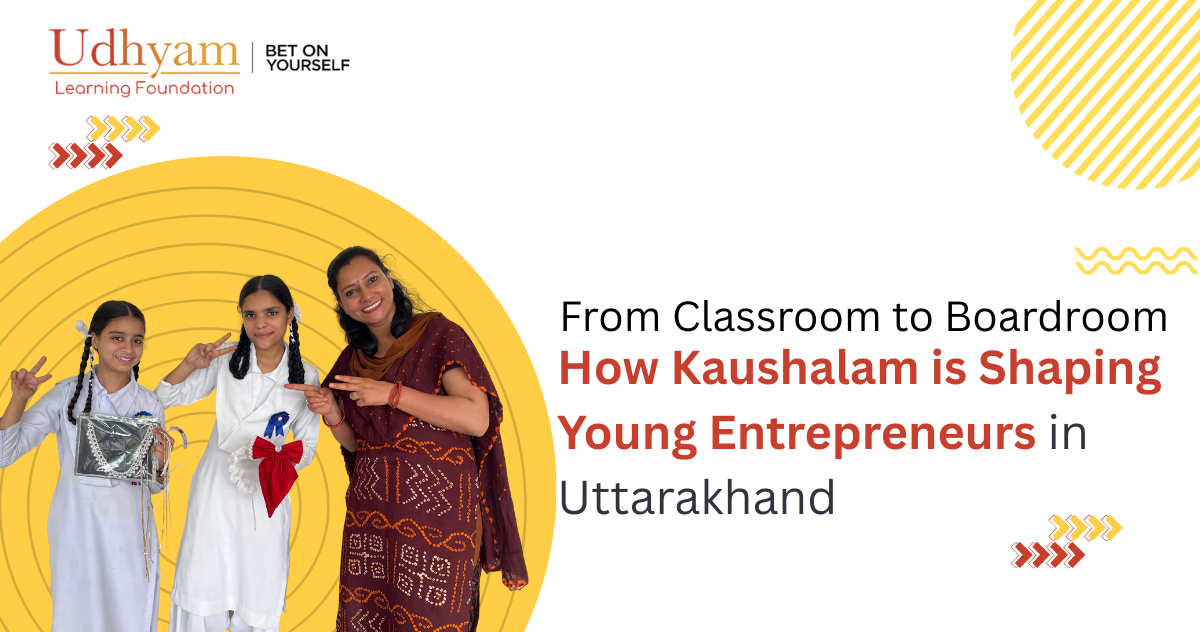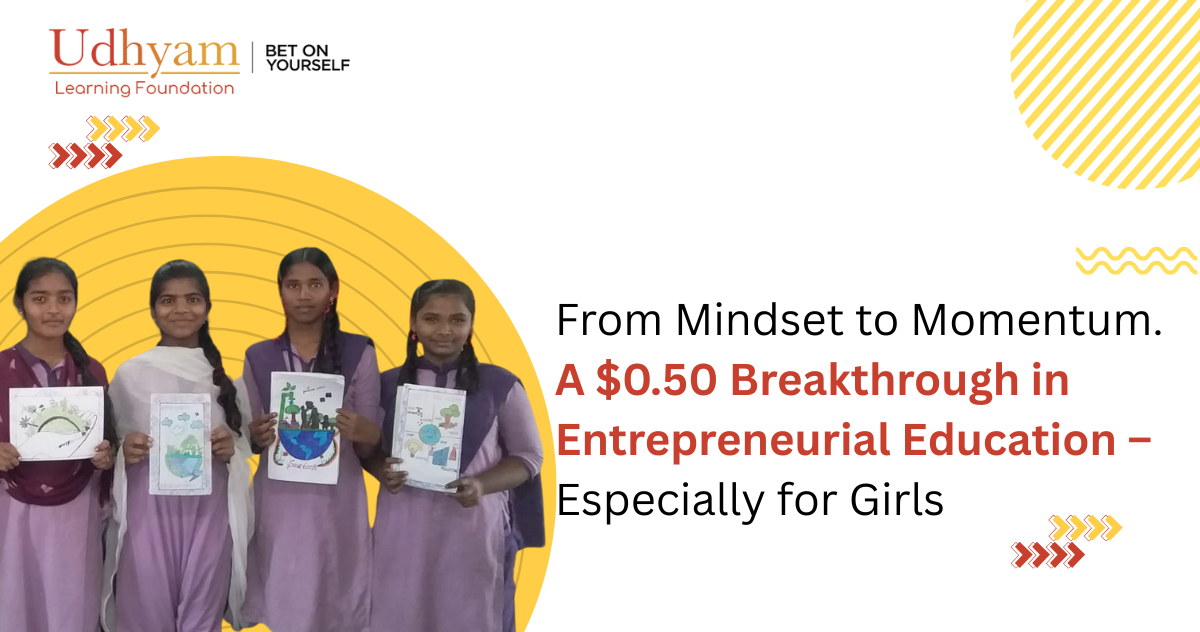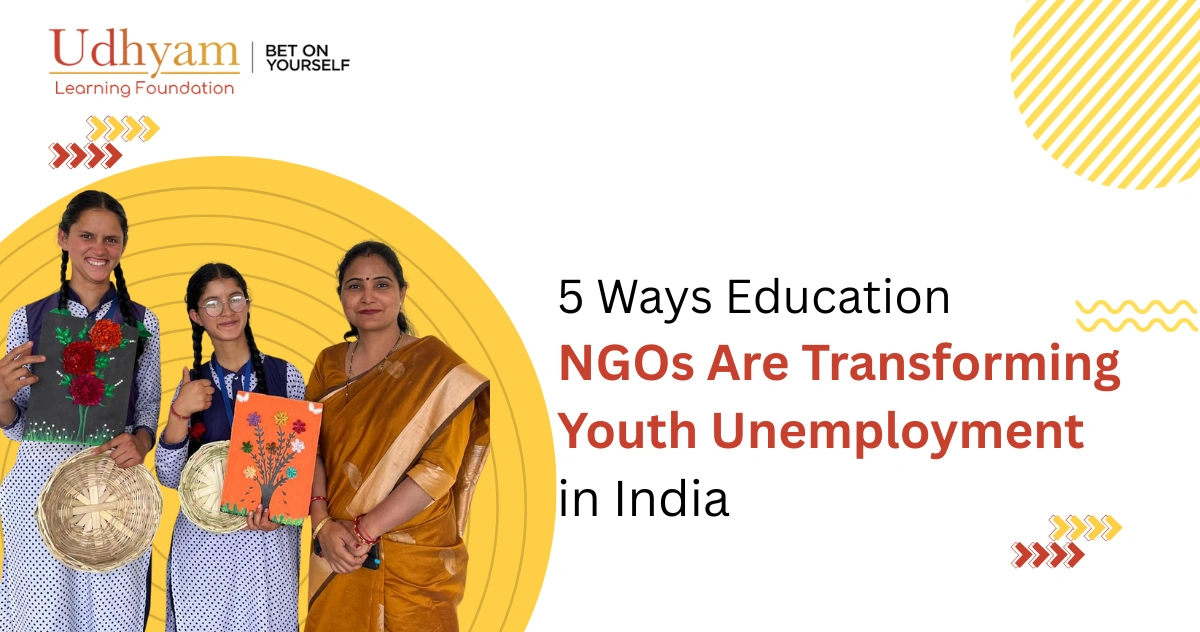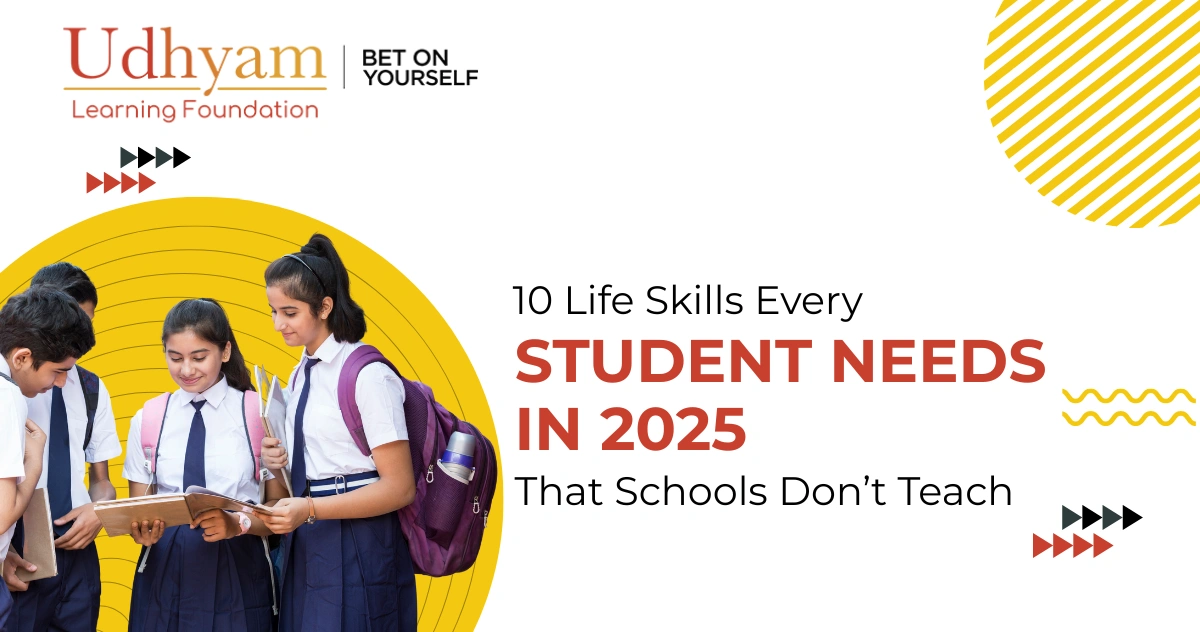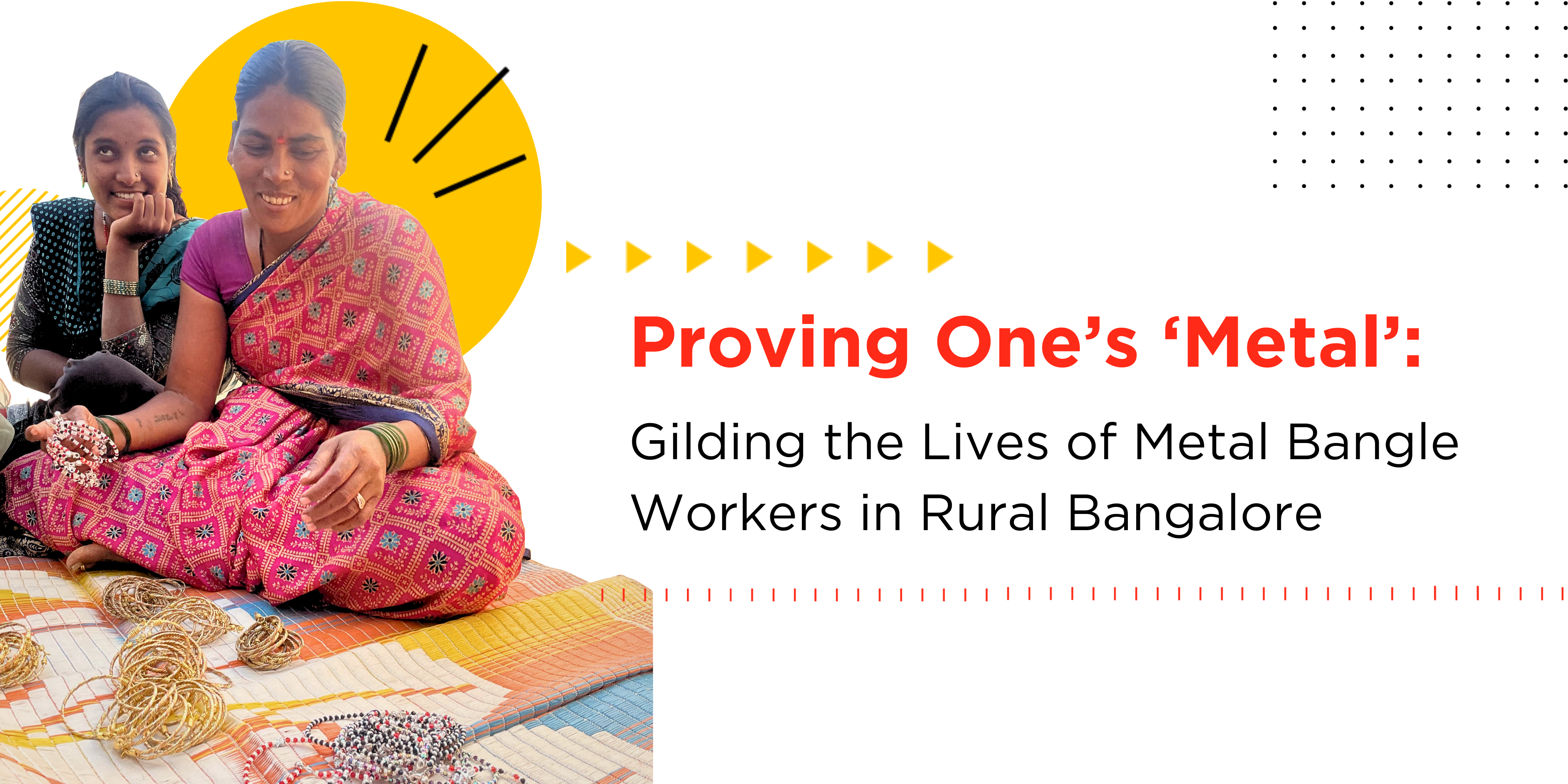When Learning Doesn’t Feel Like Living
Let’s be honest—most classrooms in India still follow a conventional model. Students take notes, prepare for exams, and try to get good marks. But often, they’re not asked: “What does this mean to me?” or “How can I apply this in my life?”
For many children, especially in government schools, education feels disconnected from their lived experiences. They learn what’s in the book—but not always how to take decisions, collaborate, or speak up with confidence. That’s the gap Kaushalam is designed to bridge
Udhyam Shiksha: Where Students Discover Themselves
At the core of Kaushalam is Udhyam Shiksha’s belief: every student should be empowered to lead their life.
The journey begins with the Entrepreneurship Mindset Curriculum (EMC)—a curriculum that builds key mindsets such as self-awareness, empathy, resilience, and collaboration. It uses stories, reflections, games, and real-life case studies. Students don’t memorize—they engage. Teachers become facilitators. There are no perfect answers—only deeper understanding.
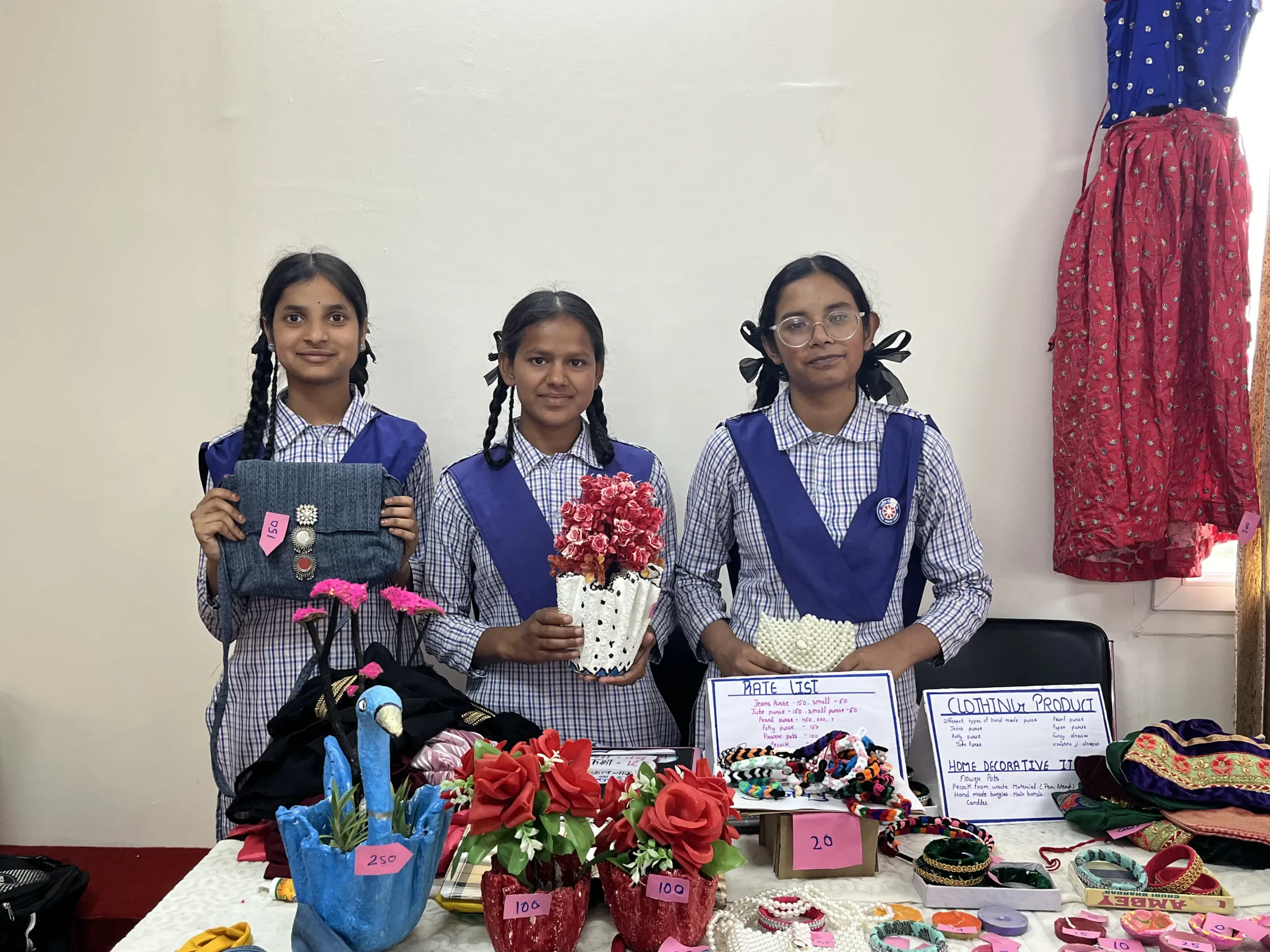
Kaushalam in Uttarakhand: Mindset to Market
In Uttarakhand, Kaushalam is not just an idea—it’s a movement. Through the 2024–25 cycle, the program reached government school students across multiple districts, enabling them to start micro-ventures, collaborate in teams, and see themselves as capable decision-makers.
Students built real businesses—like eco-friendly rakhis, herbal soaps, snack boxes, and upcycled decor—starting with just a question: “What if this could work?”
But the most powerful shift wasn’t just in products. It was in mindsets.
What Changed? The Data Tells a Story
Three key entrepreneurial mindsets were carefully measured through psychometric assessments during the 2024–25 Kaushalam cycle in Uttarakhand:
- Trying New Things (TNT):
- This was the most widely-practiced skill, with 42.8% of Class 10 students showing positive improvement from baseline to endline.
- Students began stepping out of their comfort zones—experimenting, taking initiative, and learning through trial and error.
- Grit (Perseverance for Long-Term Goals):
- Among Class 12 students, grit showed the most remarkable growth, with 44% reporting significant development.
- These students kept pushing forward even in the face of uncertainty—whether during venture challenges, group conflicts, or real customer feedback.
- Self-Efficacy (Belief in One’s Own Abilities):
- In Grade 12, 37% of students reported higher belief in their ability to set and achieve meaningful goals by the end of the program.
- This belief translated into stronger communication, better decision-making, and more ownership in their venture journeys.
These aren’t just numbers. They are indicators of real human transformation—students discovering they are capable of shaping their own futures.
What Makes Kaushalam Unique?
- Mindset to Venture: Students first explore themselves through EMC, then apply their learning via venture journeys.
- Real-World Doing: They identify local challenges and turn them into business ideas.
- Teacher as Coach: Teachers guide, question, and cheerlead rather than instruct.
- Context-Aware: The program is rooted in the realities of rural and tribal government schools, yet adaptable to urban settings.

FAQs About the Kaushalam Program
What is Kaushalam?
Kaushalam is Udhyam Shiksha’s school-based entrepreneurship journey, helping students from government schools discover their strengths, build life skills, and launch micro-ventures.
Is it only about starting businesses?
Not at all. The venture is just the medium. The goal is building confidence, communication, teamwork, and resilience.
What curriculum does it follow?
The program combines the Entrepreneurship Mindset Curriculum (EMC) with a hands-on project-based venture journey.
What support do students receive?
Trained teachers, structured learning materials, and in some cases, seed money and exposure events (like Best 100 Ideas) are provided.
Who is it for?
Primarily Classes 9–12 in government schools. The program is successfully running in Uttarakhand and other states.
The Future is Already in the Classroom
Kaushalam isn’t just a program—it’s a shift. When a student learns to say “I can do this,” that belief becomes a foundation for life.
So, the next time you hear someone say “kids can’t lead businesses,” tell them about the girl in Almora who made soaps from forest leaves or the Class 10 student who dared to pitch a new idea to his principal. Because the future of innovation in India isn’t waiting in boardrooms—it’s being built in classrooms, right now.
Want to bring Kaushalam to your school or community?
Partner with us at www.udhyam.org

